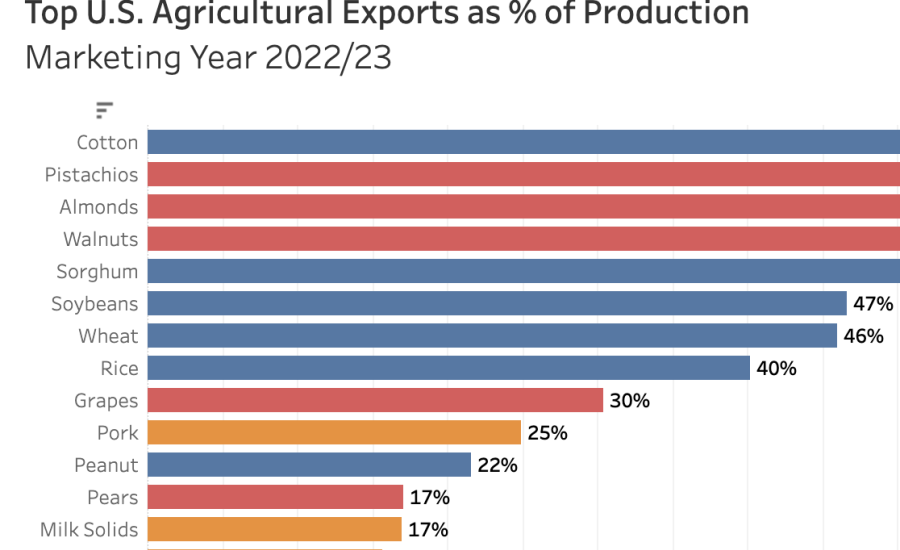Browse Data and Analysis
Filter
Search Data and Analysis
- 202 results found
- (-) Beef & Beef Products
- Clear all
This semi-annual report includes data on U.S. and global trade, production, consumption and stocks, as well as analysis of developments affecting world trade...
Turkiye’s Minister of Agriculture and Forestry, Ibrahim Yumakli, announced the “2024-2028 Livestock Roadmap” in February 2024, following significant decreases in domestic livestock inventories.
Hong Kong classifies ground meat as prohibited meat under its food legislation. Importers are required to secure a permit from Hong Kong authorities to allow the entry of U.S. meat shipments prior to arrival at Hong Kong’s port.
On July 1, 2024, the United States and Republic of Korea agreed to the labeling requirements outlined in this report regarding storage state for U.S. red meat and poultry products and U.S. processed red meat, poultry, egg, and dairy products.
On June 27, 2024, the Egyptian Ministry of Trade and Industry signed Decree No. 361/2024. The Decree extended the shelf-life validity period for imported frozen beef liver from seven to twelve months and for frozen fish from six to ten months. The decree is valid for six months, as of July 1, 2024, and expires on December 31, 2024.
U.S. agricultural exports are a critical source of farm income. The USDA Economic Research Service estimates that on average 23 percent of the output of nonmanufactured agricultural products were exported between 2013 and 2022.
Vietnam offers abundant opportunities for exporting consumer-oriented products, despite the challenges of recovering from the COVID-19 pandemic and dealing with high inflation. The Vietnamese economy is poised for significant expansion in the coming decades. With a burgeoning population and a growing middle class, Vietnamese consumers are becoming more discerning about the origin and composition of their food.
The 2023 U.S. Agricultural Export Yearbook provides a statistical summary of U.S. agricultural commodity exports to the world during the 2023 calendar year.
Nicaragua reported an outbreak of New World screwworm to the World Organization for Animal Health following confirmation of a sample collected on March 12, 2024. Nicaragua is the largest cattle producer in Central America and last detected screwworm in 1996.
This semi-annual report includes data on U.S. and global trade, production, consumption and stocks, as well as analysis of developments affecting world trade...
Health Canada is proposing a policy revision for foods derived from somatic cell nuclear transfer (SCNT), cattle and swine and their progeny.
The Canadian cattle herd continues its sustained contraction in 2024. A smaller beef cow inventory will see the 2024 calf crop decline. Improved cattle prices may signal improved heifer retention if moisture conditions and pastures improve, or producers could see this as an opportune time to maximize exiting the industry during a time of better returns.

